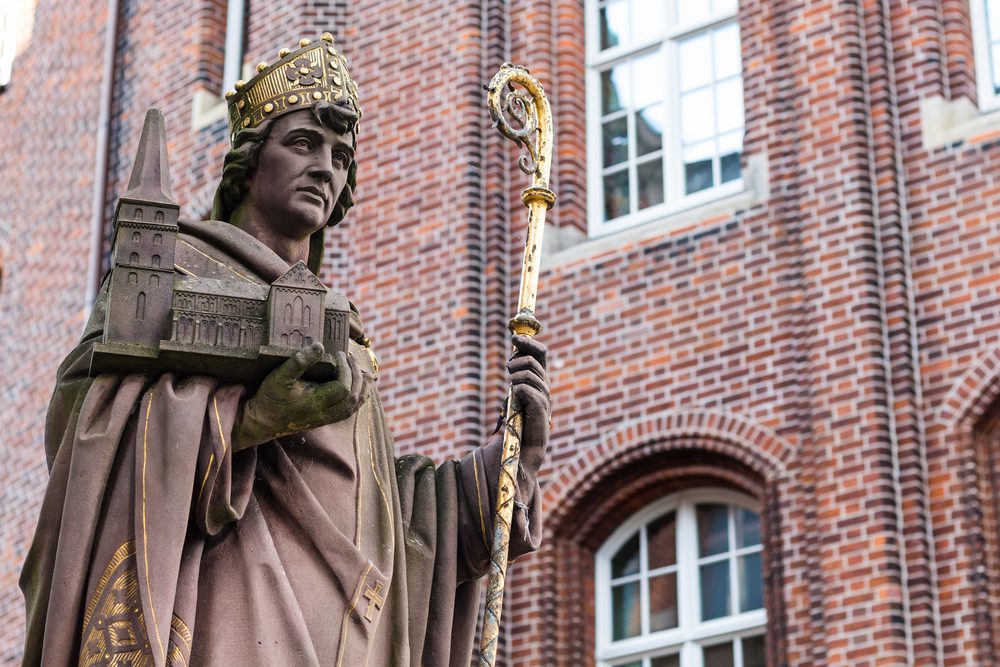
Saint Ansgar, the 9th-century Archbishop of Hamburg and the first missionary to the Nordic countries, later named the “Apostle of the North” and declared the “Patron of Scandinavia.”
Catholic bishops from the five Nordic countries released a joint pastoral letter on Saturday, March 25th, meant to reinforce the Christian teaching on sexuality, backing the “embodied integrity of personhood” against the passing fad of modern transgender ideologies, the Catholic News Agency reported.
The letter, which was read aloud during the Sunday Masses last weekend in Denmark, Sweden, Norway, Finland, and Iceland, was signed by eight church leaders, including Cardinal Anders Arborelius, the bishop of Stockholm.
The letter describes transgenderism as a temporary social trend, not meant to last but dangerous, nonetheless. Therefore, it is the responsibility of the Church to warn the faithful before they embark on this treacherous path and to educate them on Catholic teachings.
Now, notions of what it is to be a human, and so a sexual being, are in flux. What is taken for granted today may be rejected tomorrow. Anyone who stakes much on passing theories risks being terribly hurt. We need deep roots.
Let us, then, try to appropriate the fundamental principles of Christian anthropology while reaching out in friendship, with respect, to those who feel estranged by them. We owe it to the Lord, to ourselves, and to our world, to give an account of what we believe, and of why we believe it to be true.
In the letter, the bishops explain that the Church welcomes everyone equally, no matter their gender or sexual identification, because the mercy of the Lord is universal and was given irrevocably to all mankind. “This mercy excludes no one. But it sets a high ideal,” it states. Therefore, the bishops declare dissent from any movement that puts forward a view of human nature that “abstracts from the embodied integrity of personhood, as if physical gender were accidental.”
Once again, one of the most fundamental theses of Christian theology needs to be reinforced, it appears. The bishops not only stated that God created us men and women, but also stressed that His image manifests itself in the complementarity of our respective sexes, which provides the foundation for social and civilizational growth through the sanctity of the nuptial union.
The Scandinavian bishops expressed similar views to the American and German Church leaders, who condemned the German Synodal Path’s recognition of same-sex marriages earlier this month. According to U.S. Cardinal Raymond Burke, those Catholic leaders who give in to the LGBT pressure and seek to institutionalize the movement’s ideology within the Church, are in fact committing “heresy” or “apostasy.”
Nonetheless, the Nordic letter recognizes that for some people, the integration within themselves of masculine and feminine characteristics can be hard, and even seem impossible at times. But “there are elements of chaos that need to be ordered” in all of us, and God calls on everyone to undertake that challenge equally.
At last, the Scandinavian bishops did provide their flocks with concrete recommendations, especially those “who are perplexed by the traditional teaching on sexuality.” First, they suggest that everyone should get to know Christ more intimately through prayer, Scripture, and liturgy. To take part in the Church’s life and actively study its teachings. Second, the letter suggests considering the limitations of “a purely secular discourse on sexuality,” which—as all integral parts of our societies—need to be addressed from a religious perspective as well.
[The Church] shall have a precious contribution to make if we recover the sacramental nature of sexuality in God’s plan, the beauty of Christian chastity, and the joy of friendship, which lets us see that great, freeing intimacy can be found also in non-sexual relationships. […] The point of the Church’s teaching is not to curtail love but to enable it.
